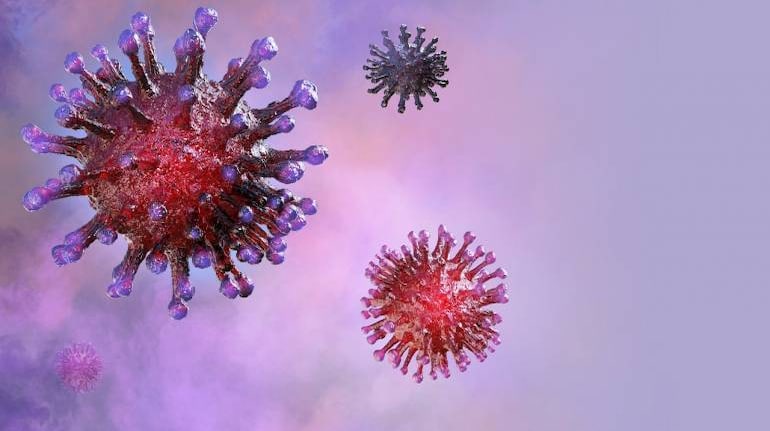



People who are infected with the SARS-CoV-2 virus that causes COVID-19 have a distinct odour that can be detected by trained dogs with a high degree of accuracy, according to a new research in the UK.
This is one of the most complete studies up to date. It combines dog trial, odour analysis and modelling, and was led by London School of Hygiene & Tropical Medicine (LSHTM) in collaborative research with the charity Medical Detection Dogs and Durham University.
They found that specially trained dogs can rapidly and non-invasively detect the disease with up to 94.3 percent sensitivity and up to 92 percent specificity. These dogs were able to detect an odour from individuals who were asymptomatic, as well as those with two different strains of COVID-19, and with both high and low viral loads, the study released last week said.
With the threat of new variants entering the country, the need for testing means we face potential continued disruption for some time to come. That's where these amazing dogs could play a role, said Professor James Logan, Head of the Department of Disease Control at LSHTM.
"Further research is required to see if the dogs can replicate these results in a real-world setting, but these findings are hugely encouraging. The advantage of using this method is being able to detect COVID-19 with incredible speed and good accuracy among large groups of people, even in asymptomatic cases," he said.
"The dogs were trained by the team at Medical Detection Dogs to identify COVID-19 using body odour samples which were sent to the research team by members of the public and National Health Service (NHS) staff, consisting of masks, socks and t-shirts. The team at LSHTM collected and processed a total of 3,758 samples and chose 325 positives and 675 negative samples for testing. These results are further evidence that dogs are one of the most reliable biosensors for detecting the odour of human disease. Our robust study shows the huge potential for dogs to help in the fight against COVID-19," said Dr Claire Guest, Chief Scientific Officer at Medical Detection Dogs.
Knowing that we can harness the amazing power of a dog's nose to detect COVID-19 quickly and non-invasively gives us hope for a return to a more normal way of life through safer travel and access to public places so that we can again socialise with family and friends, she said.
Along with mathematical modelling, the potential for dogs to be used at ports-of-entry or other sites, with preparatory work suggesting that two dogs could screen 300 plane passengers in around 30 minutes as part of a "Rapid Screen and Test" strategy.
Only individuals who are identified by the dogs would require a PCR test. Use of the Bio Detection dogs plus a confirmatory PCR test is estimated to detect more than twice as many cases and prevent more onward transmission than isolating symptomatic individuals only. Professor Steve Lindsay, from the Department of Biosciences at Durham University, added: This is a very exciting result showing that there is a distinct smell associated with COVID-19 and, more importantly, that trained dogs can detect this with a high degree of accuracy.
Also Read: Dogs can sniff COVID-19 infection before symptoms set in, research suggests
Dogs could be an efficient method to screen a large number of people quickly and prevent COVID-19 from being reintroduced into the UK. These trained dogs could potentially act as a fast screening tool for travellers with those identified as ineffective confirmed with a lab test. This could make testing faster and save money.
The study, which is to be peer-reviewed, claimed to be the first to comprehensively assess whether trained dogs can distinguish between the odour of people infected with SARS-CoV-2 and those who are uninfected, in a randomised double-blind trial, with a sufficiently high number of dogs and odour samples.
The dogs were trained over a number of weeks by introducing them to the odour samples from individuals that had tested positive for COVID-19, as well as control samples from people who had tested negative. Samples were presented to the dogs on a stand system and the dogs were rewarded for correctly indicating a positive sample, or for correctly ignoring a negative sample. Six dogs were then taken forward to the important double-blind trial where the dog, technician and dog trainer were not aware of which samples were positive or negative.
This removes any risk of inadvertent bias or behavioural cue that the dog could pick up on to indicate the correct response. Six dogs were then taken forward to the important double-blind trial where the dog, technician and dog trainer were not aware of which samples were positive or negative.
A similar project was also trialled in India, where the Indian Army trained dogs, including one of the indigenous breeds Chippiparai, to detect COVID-19 using sweat and urine samples.
- With inputs from PTI
Discover the latest Business News, Sensex, and Nifty updates. Obtain Personal Finance insights, tax queries, and expert opinions on Moneycontrol or download the Moneycontrol App to stay updated!
Find the best of Al News in one place, specially curated for you every weekend.
Stay on top of the latest tech trends and biggest startup news.